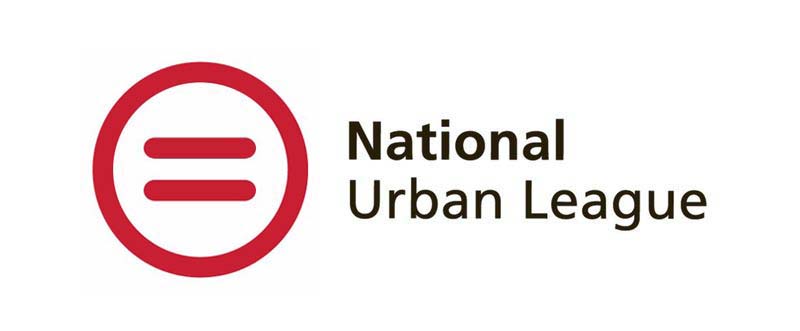You don’t just use reasoning skills on logic tests — they’re helpful in the workplace for understanding problems, drawing conclusions, and finding the right solutions. Inductive reasoning is a type of logical thinking where you draw a general conclusion from specific observations. This guide will cover what inductive reasoning is, how this skill is used at work, and how to improve your inductive reasoning. You’ll learn:
- Inductive Reasoning Definition
- How Is Inductive Reasoning Used in the Workplace?
- How to Include Inductive Reasoning Skills in a Job Application
- How to Improve Inductive Reasoning Skills
Inductive Reasoning Definition
Inductive reasoning is a soft skill that involves making a general conclusion based on specific facts or phenomena you’ve observed.
“You’re using predictive thinking (combining what you observe with what you know through experience) to reach a conclusion,” Gretchen Skalka, leadership and career development coach, says.
In the above example of inductive reasoning, the person has used these skills to observe one thing they know and one pattern they’ve recognized. The conclusion is a probable, educated, and informed guess based on what this person has observed and noticed.
Yet it’s important to note that while inductive reasoning leads you to probable conclusions, not all of these conclusions are correct. In the above example, it might be true that Remi has a career in finance, but finance careers aren’t the only jobs that might require more than 80 hours per week of work.
Inductive reasoning is still a helpful form of logical thinking because you arrive at potential and probable solutions. However, you’ll need to test your conclusions to know if they’re right.
Inductive vs. Deductive Reasoning
While deductive reasoning is also a type of logical thinking, its process is the opposite of inductive reasoning. Inductive reasoning works from the bottom — specific facts, patterns, and observations — and ends with a general conclusion. Deductive reasoning works from the top, a general conclusion, and ends with a specific one.
Using a similar premise from the above example, deductive reasoning would look like this:
Like conclusions drawn from inductive reasoning, deductive reasoning conclusions aren’t always accurate. They’re only accurate when both premises (the general conclusion and the specific fact) are true.
>>MORE: What Is Deductive Reasoning?
How Is Inductive Reasoning Used in the Workplace?
While a company’s job description won’t likely include “inductive reasoning” as a requirement, this skill can help you be an effective problem-solver at work. Employers need employees who can find solutions based on observations, patterns, or trends they’ve seen before. So whether you’re in investment management or marketing, inductive skills are valuable to any career path.
Inductive Reasoning Examples
Skalka gives an example of a corporate trainer having trouble getting people to participate in their training program.
“Let’s say you are in a new role as a corporate trainer and you notice one of your class attendance rates are highest for those where food and snacks are provided. So you decided to provide food or snacks for all classes to get more consistent participation rates,” she says. “Using inductive reasoning, you’ve made a decision that will help solve the problem of poor participation in your corporate training program.”
Another workplace example: A marketer talking to a focus group observes that people are more likely to click through to the next page when they’re encouraged to “learn more” rather than “sign up.” She changes the language on her company’s pages to “learn more” to help drive more clicks.
For each example, the employee observes a pattern happening in the workplace. Then, they take action based on that pattern to try and reach a conclusion.
While it’s not guaranteed that adding snacks will increase attendance for every class (even that Friday afternoon one) or a new call to action will make more people click (even visitors of a different age group and gender), inductive reasoning gives you a place to start testing, learning, and hopefully nailing the right solution.
Showcase new skills
Build the confidence and practical skills that employers are looking for with Forage’s free job simulations.
How to Include Inductive Reasoning Skills in a Job Application
Because they’re part of problem-solving skills, inductive reasoning skills are highly valuable in the current job market. According to the National Association of Colleges and Employers, 85% of employers are looking for problem-solving skills on new graduate resumes. This is the top soft skill employers are looking for in 2022.
So, how can you show off these skills on a job application?
“Active listening, communication, problem solving and interpersonal skills can be broken out on a resume, but the best way to demonstrate these skills to potential employers is through example, storytelling,” Skalka recommends.
Instead of simply listing these skills on your resume or in your cover letter, describe how and when you’ve used them and what results you achieved because of them.
“Add quantifiable achievements to your resume that illustrate what you’ve accomplished using these skills,” Skalka says. “And discuss them in greater detail in your cover letter and during your interview. Because, while it’s important to let employers know you have the skill, it’s critical to demonstrate to them that you can use the skill.”

Forage Resume Writing Masterclass
Craft a resume that highlights your skills and gets you noticed with our free masterclass.
Avg. Time: 5 to 6 hours
Skills you’ll build: Resume writing, professional branding, summary, industry keywords, transferable skills, standing out
How to Improve Inductive Reasoning Skills
You can independently improve your inductive reasoning skills through heightened awareness, focus, observation, and practice with logic.
Be Present
Observation is a core component of inductive reasoning. It’s hard to be observant if you’re not always present. Instead of rushing to find an answer or get something done, start by slowing down. Be aware of what you see and what’s happening. Are there any patterns you notice? Are there any details you might usually miss? Observe your everyday surroundings, and note anything that stands out to you. This practice will train your mind to be more aware and focused, which will help you use what you’ve observed to draw conclusions.
Amplify Your Memory
When we use inductive reasoning, we recall past observations or details. It’s not enough to be present at the moment; you need to remember what you observed five moments ago or a few months ago to help you solve future problems. You can help jog your memory by taking notes of what you’ve observed. You can also use traditional methods and tricks to help improve your memory, like playing word games or mnemonics.
Consider How You’ve Used This Skill Before
It sounds counterintuitive — why would you need to think about how you’ve already used a skill to improve at it? Yet, with something like inductive reasoning, you might not have noticed you’ve used it before.
Think about times you’ve made a decision based on observations. Maybe it was something as simple as noticing when your dad comes to visit, he eats a lot of turkey sandwiches, so you decide to buy more turkey from the deli.
When you understand how you use inductive reasoning in everyday life, you can better apply it to more complex situations and find effective solutions.
Quoted Sources
Gretchen Skalka is a leadership and career development coach and owner of Career Insights Consulting, LLC. She has over 13 years of experience as a career mentor and helps professionals with their job search, interview strategy and preparation, resumes, and cover letters.
Image credit: Mikhail Nilov / Pexels


